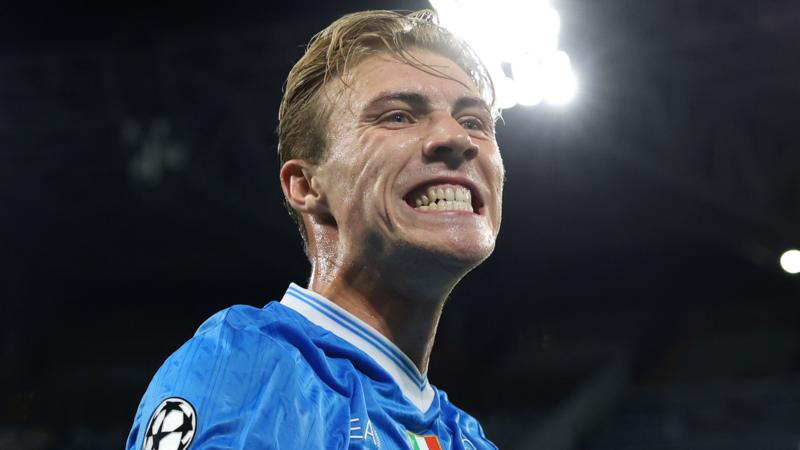Hojlund Poised to Hit 25 Goals Annually with Quality Service




In a turn of events that has stirred up considerable conversation among football fans and analysts alike, Peter Schmeichel, the legendary Manchester United goalkeeper, has expressed his disapproval over recent decision-making at the club. Two players, Rasmus Hojlund and Scott McTominay, have moved to Napoli, a decision that Schmeichel suggests could reflect deeper issues at Manchester United.
Schmeichel, whose insights are always highly respected given his illustrious career and deep connections at Manchester United, is particularly critical of how transfers are being handled by the club's management. His concern is that Manchester United might be letting go of promising talent without adequate strategic thought.
Rasmus Hojlund, a young promising striker, showed significant potential and was seen by many as a future star at Old Trafford. His move following Scott McTominay, a homegrown talent who had become a regular in Manchester United’s midfield, seems to underscore Schmeichel's worries about the club’s transfer strategy.
Manchester United, with a rich history of nurturing and holding on to young talents, appears to be shifting from this tradition. This change in strategy might be indicative of several underlying factors including financial pressures, a reevaluation of the club’s long-term goals, or a response to the evolving dynamics of the football industry.
However, it's also crucial to recognize why players like Hojlund and McTominay are making moves to clubs like Napoli. Napoli has been on the rise in European football, consistently competing at high levels in Serie A and the UEFA Champions League. The promise of regular first-team football, especially in a different competitive league, can be very appealing to players looking to develop their skills and showcase their talent on new platforms.
For McTominay, the move could represent a fresh challenge and an opportunity to cement his place as a key player in a top European club, aspects that might have been becoming unclear at Manchester United given the competition for midfield places and possible changes in team dynamics.
Similarly, for Hojlund, stepping into the Serie A, known for its tactical depth and defensive rigour, could be crucial for his growth as a forward. The exposure to different styles of play and the chance to lead the line at a younger age might provide him with experiences that could turn out to be invaluable in his career development.
The core of Schmeichel’s criticism lies perhaps not in the quality of Napoli as a destination but in what this trend symbolizes for Manchester United. It raises questions about the club's vision for the future and its commitment to nurturing talent within. These decisions might not just affect the team’s performance in the upcoming seasons but could also influence its attractiveness to young, promising talents who consider long-term growth and stability before committing their futures to a club.
What Manchester United must do, in response to concerns like those voiced by Schmeichel, is to provide clear and convincing answers about their strategy. Are these transfers a part of a larger rebuild or a pivot in philosophy? Or are they short-sighted decisions driven by other factors?
Fans will be looking closely at the club's next moves — both on and off the field. They will want assurances that Manchester United is not only a place where stars are brought but also made. While transfers are a natural part of football, it is the nature and strategy behind them that often decide a club’s trajectory in the increasingly competitive and global sport of football.
Peter Schmeichel’s pointed remarks could serve as a crucial wake-up call for the club, initiating necessary introspection and perhaps recalibration of the way forward. It's a discussion that resonates not just with Manchester United fans but with anyone interested in the dynamics of football transitions and the nurturing of sports talent.